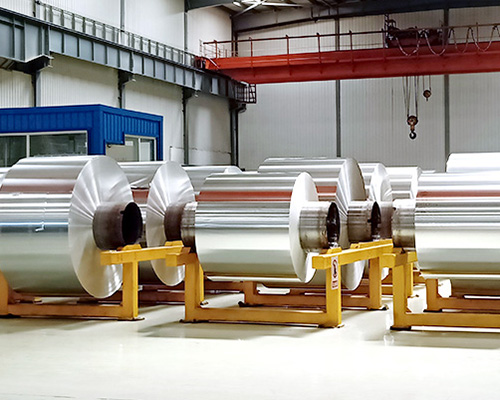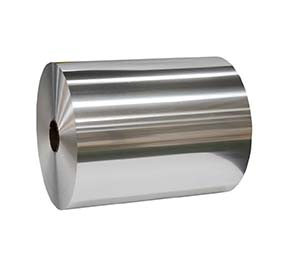Packaging's Function in Food Preservation
 The difficulty of food preservation extends from the farm to the table. The preservation of food products' quality and safety is crucial in a world where the route from producer to consumer can be long and convoluted. The first line of defense against elements that can cause food to spoil, become contaminated, or degrade is packaging.
The difficulty of food preservation extends from the farm to the table. The preservation of food products' quality and safety is crucial in a world where the route from producer to consumer can be long and convoluted. The first line of defense against elements that can cause food to spoil, become contaminated, or degrade is packaging.It is impossible to exaggerate the importance of packing for food preservation. It goes far beyond merely holding things in place; it also acts as a barrier to protect food from various dangers.
Contamination: Food is susceptible to contamination as soon as it is harvested or processed. This includes potentially dangerous germs, allergies, and foreign chemicals that could endanger customers' health. These contaminants are kept out of the food product by the packaging, which serves as a barrier between them and the product.
Moisture sensitivity: A lot of food products are moisture-sensitive. Increased humidity can cause mold to grow, food to spoil, and texture changes. The integrity of the product is maintained by proper packaging, such as aluminum foil, which helps maintain the optimum moisture level inside the box.
Food products may undergo photochemical reactions when exposed to light. Vitamins may degrade, off tastes may emerge, and shelf life may be shortened as a result. Aluminum foil and other packaging materials effectively block out light to safeguard the contents.
Oxygen: Oxidation, which can have a negative effect on the flavor, color, and nutritional value of food, can be caused by oxygen. Additionally, it might create conditions that encourage the development of rotting microbes. Packaging reduces exposure to oxygen, protecting the quality of the food, especially when it has an excellent oxygen barrier, like aluminum foil.
The Unveiling of Jumbo Rolls of Aluminum Foil
Jumbo rolls of aluminum foil, which are frequently made from premium aluminum alloys, are the hidden heroes of food preservation. These rolls serve as the foundation for the recognizable aluminum foil sheets that we use every day in our kitchens. Aluminum ingots are rolled into thin sheets that are typically less than 0.2 millimeters thick as part of the production process. These sheets undergo additional processing before being sliced into different sizes for various uses, including food packing.
The Barrier Effect of Aluminum Foil, Section
Understanding the key barrier effect that aluminum foil jumbo rolls provide is essential to understanding how these rolls help preserve food. Food packaging contamination can happen in a number of ways:
Migration of Dangerous Substances: Some packaging materials may contain ingredients that could leach into food and provide a health risk. However, because aluminum foil is inert, it does not interact with food or release any dangerous compounds.
Exposure to External Pollutants: Food goods may be exposed to outside pollutants such smoke, dust, and volatile organic compounds while being stored and transported. Due to its superior barrier function, aluminum foil prevents harmful contaminants from penetrating the packaging.
Microbial Growth: In the presence of moisture and oxygen, microorganisms including bacteria, molds, and yeasts can flourish. The risk of microbiological infection is greatly decreased thanks to the impenetrable barrier that aluminum foil creates.
Aluminum foil is the best material for packaging food goods because of its mix of hygienic qualities that make it resistant to contamination, moisture, and oxygen.
Case Studies: Actual Success Stories
Numerous case studies from diverse industries support aluminum foil's effectiveness in food preservation. These studies demonstrate how aluminum foil has been used to preserve a variety of goods, including non-perishables like snacks, confections, and beverages as well as perishables like dairy, meat, and bakery items.
Aluminum Foil's Advantages for Food Preservation
For instance, in the dairy industry, butter is frequently packaged in aluminum foil. The butter is kept fresh, odor-free, and protected from outside odors thanks to its barrier properties. Meat products are vacuum-sealed in aluminum foil to increase their shelf life and prevent freezer burn. Bakeries frequently utilize aluminum foil as packaging to preserve the flavor and texture of delicate pastries and cakes.
Protection Against External Pollutants: The impermeable barrier of aluminum foil shields food products from a range of external pollutants, preserving the freshness and purity of the food items' contents.
Food's flavor and nutritional content are maintained while the taste, aroma, and texture are retained when it is wrapped in aluminum foil. Thus, consumers can benefit from products that are just as enticing and delightful as they were when they were first packaged.
Sustainability factors: Recycling aluminum foil consumes a significant amount less energy than producing raw aluminum. This is in line with efforts to decrease packaging's harmful effects on the environment and to enhance food industry sustainability.
Aluminum Foil's Role in Food Preservation in the Future
The use of aluminum foil in the food business is developing along with it. The barrier qualities of the material are being further enhanced by ongoing research and innovation. To boost the efficiency of barriers against moisture, oxygen, and light, novel coating techniques are being researched. By using cutting-edge production methods, aluminum foil's thickness can be decreased while yet retaining its strength and barrier properties.
Incorporating smart packaging technologies is a relatively recent development in the world of food packaging. These advancements make it possible to monitor product quality and freshness in real-time, giving businesses and customers pertinent information about the state of the food inside the package.
Sustainable development is yet another crucial concern. Production and disposal of aluminum foil have less of an effect on the environment. To promote a more circular economy, these initiatives use renewable energy sources, promote energy efficiency, and improve recycling procedures.
The end effect is that enormous rolls of aluminum foil are undoubtedly a secret weapon in the field of food preservation, even though they might not always receive the credit they deserve. They are crucial in maintaining the safety, enjoyment, and quality of the food we eat due to their outstanding barrier qualities, adaptability, and capacity to sustain food quality.
In the upcoming years, it will be feasible to decrease food waste, boost sustainability, and establish a more secure food supply chain thanks to ongoing innovation and the ethical use of aluminum foil in food packaging. Aluminum foil big rolls are a silent but crucial protector of our food, whether it's increasing the shelf life of dairy products, preserving the flavor of baked goods, or maintaining the freshness of meat products.
Many well-known businesses now use aluminum foil as their primary packaging material, which has greatly improved consumer satisfaction and lowered the number of product recalls. These success stories show how using aluminum foil can improve efforts to preserve food, maintain product quality, and extend shelf life.
The Benefits of Aluminum Foil for Food Preservation
Aluminum foil provides other advantages for food preservation in addition to its excellent barrier properties.
Enhanced Shelf Life: Aluminum foil's barrier properties effectively block contaminants and moisture from entering, enhancing food goods' shelf lives. This decline in spoilage contributes to lowering food waste, which is a growing global concern.

.jpg)



